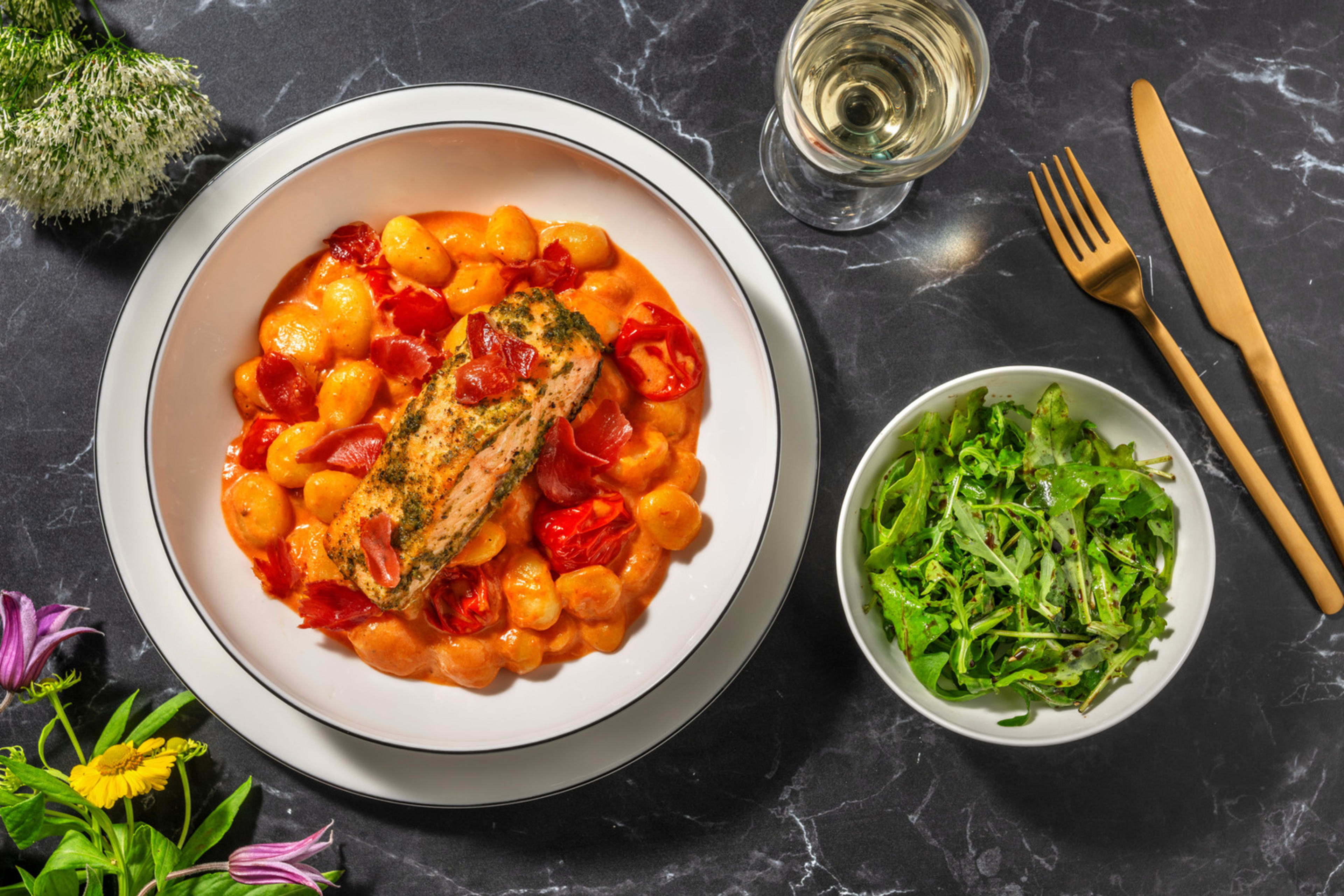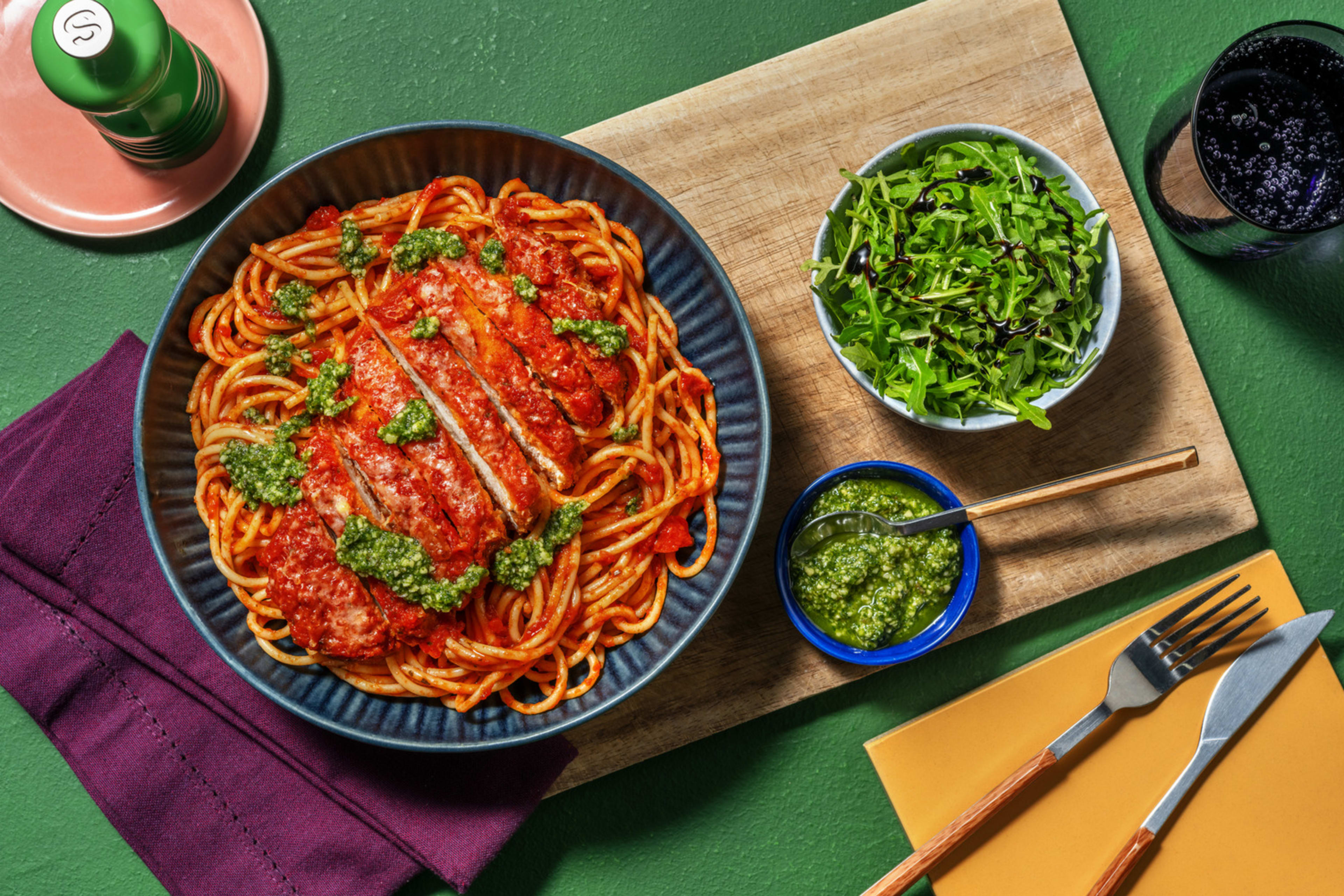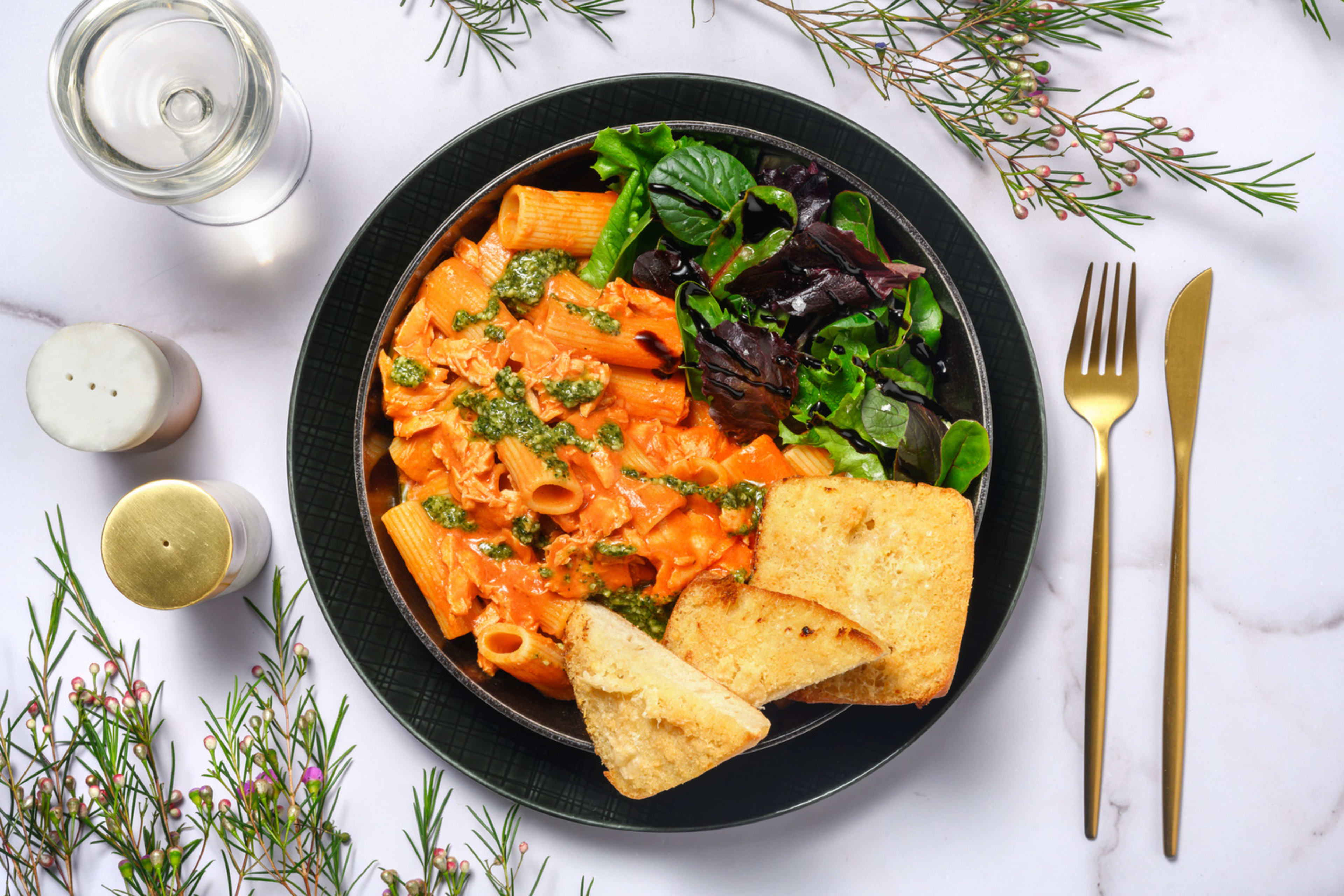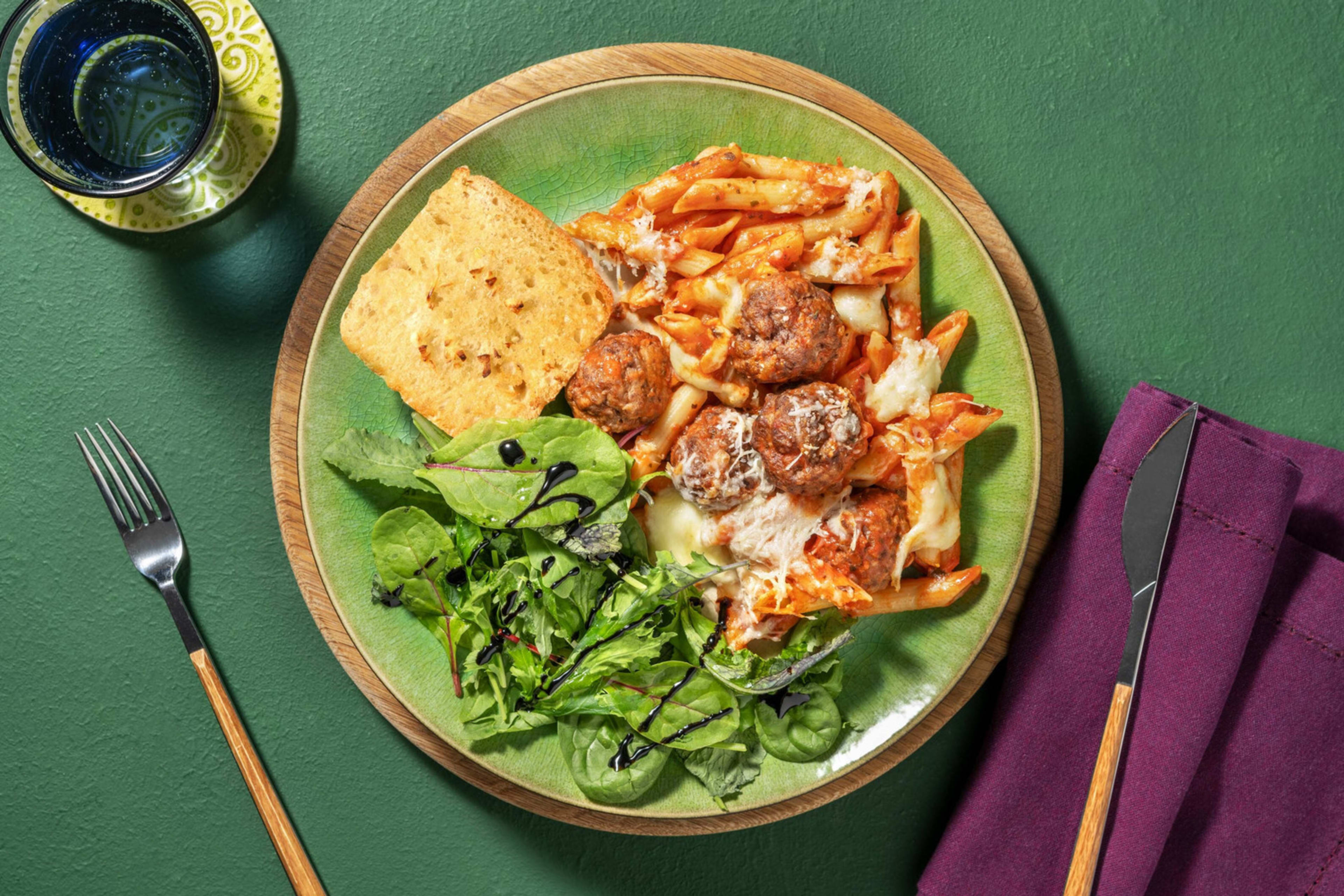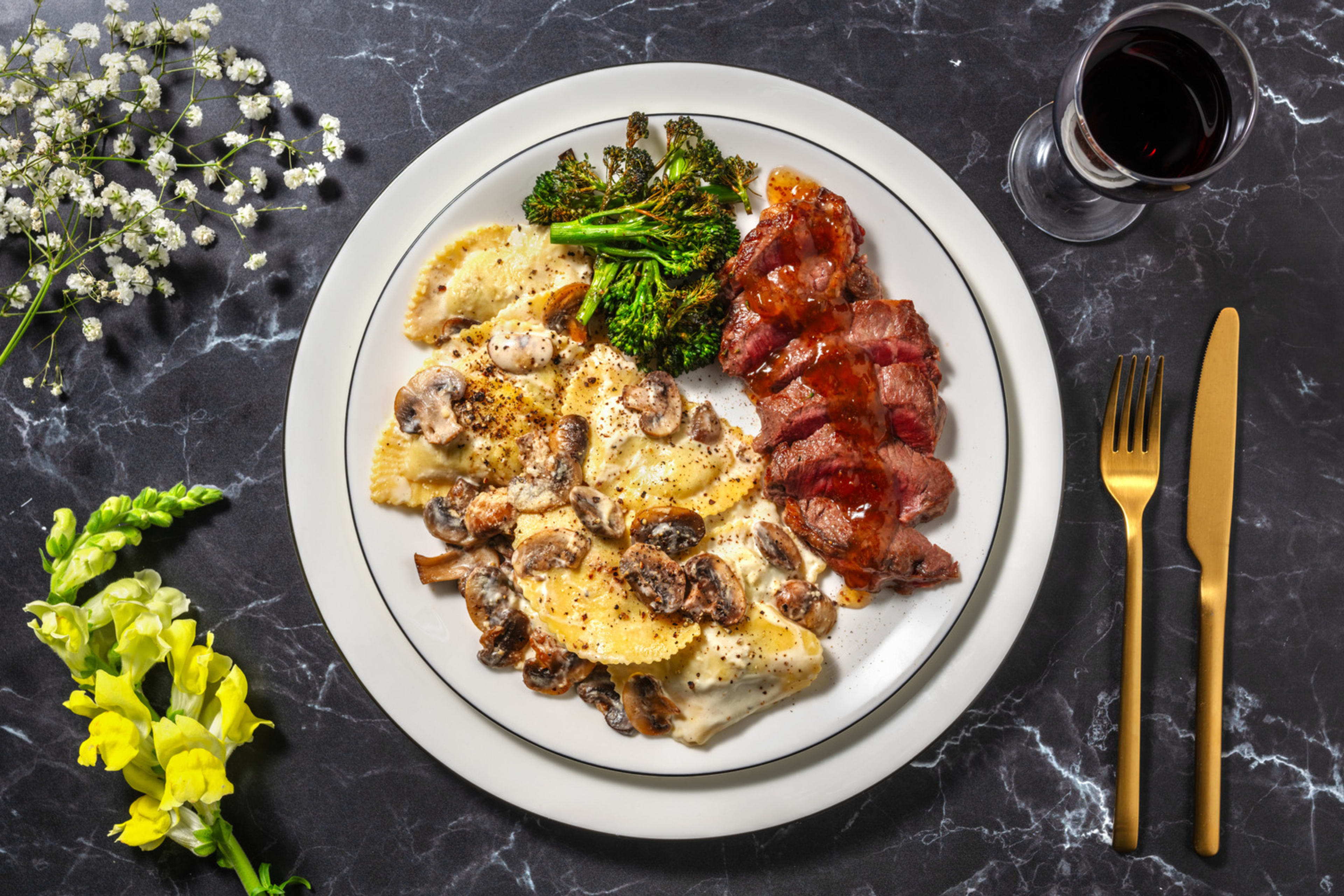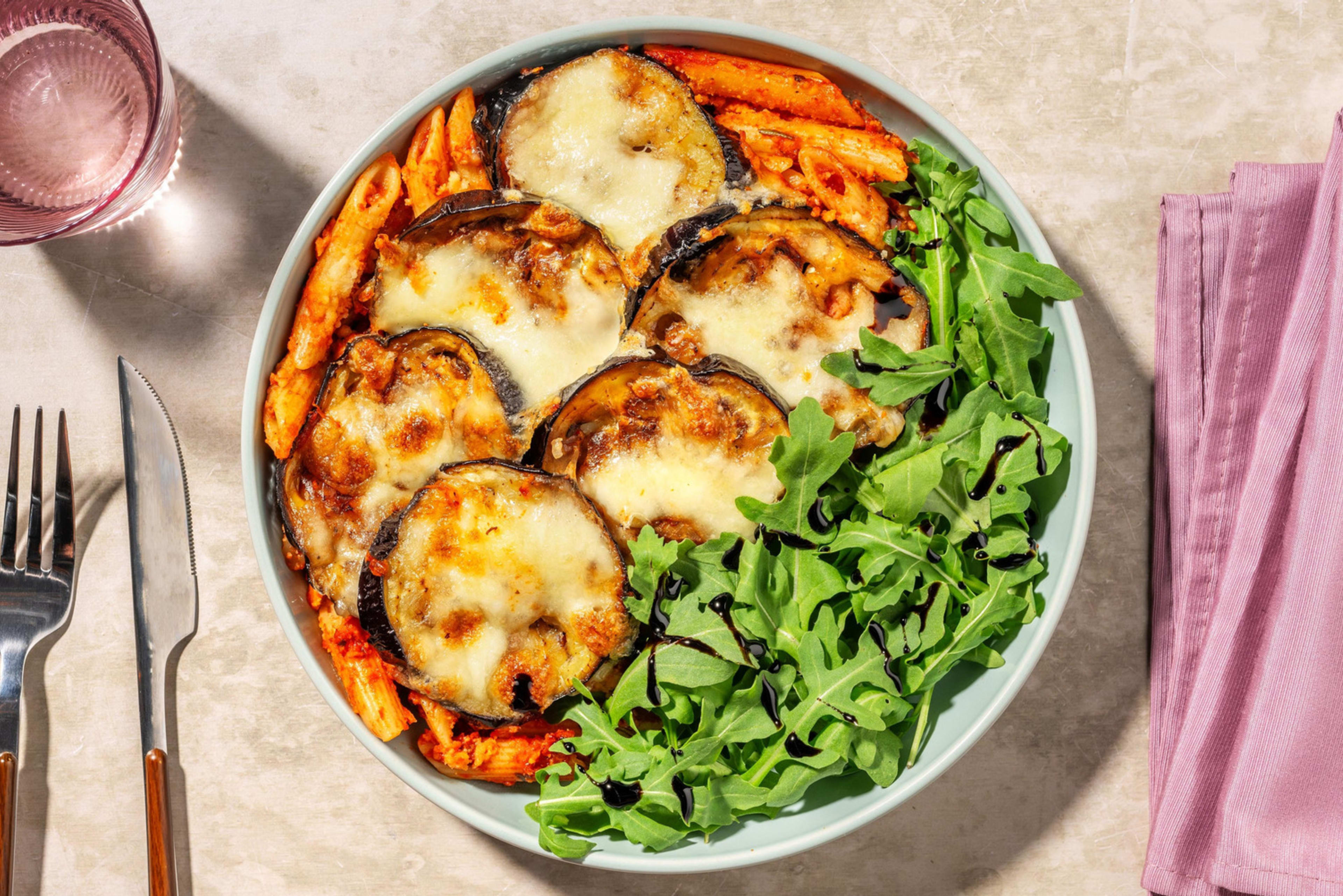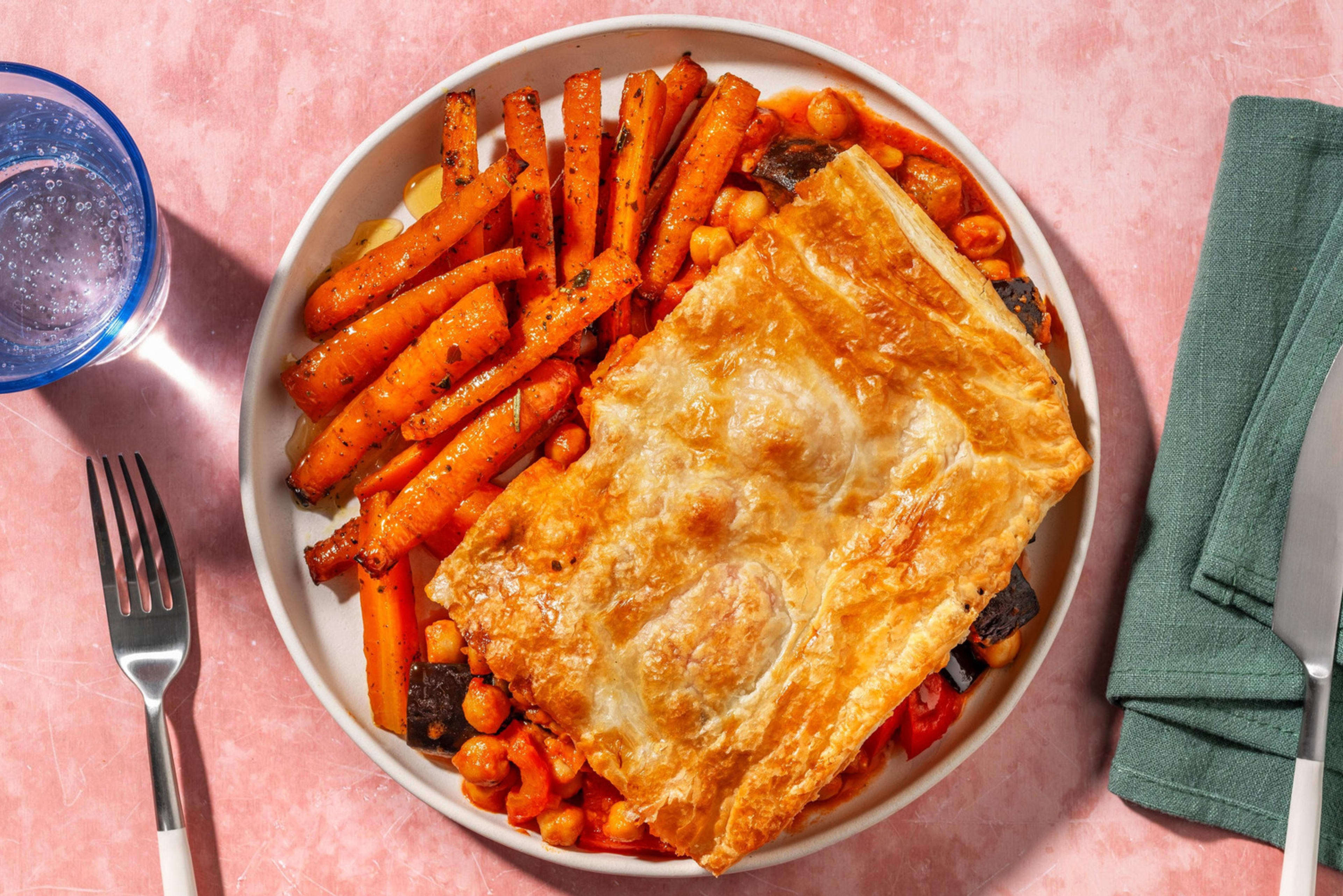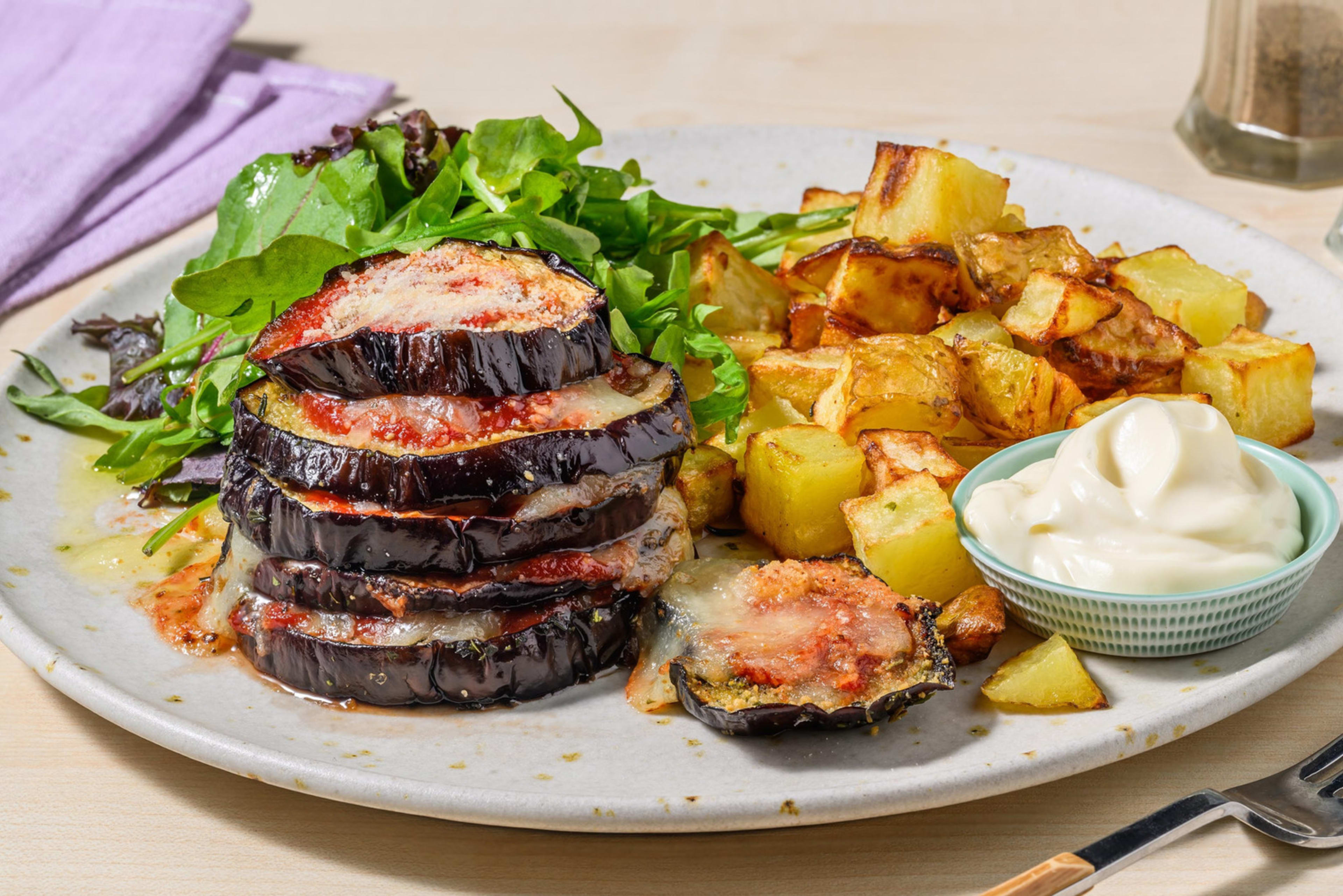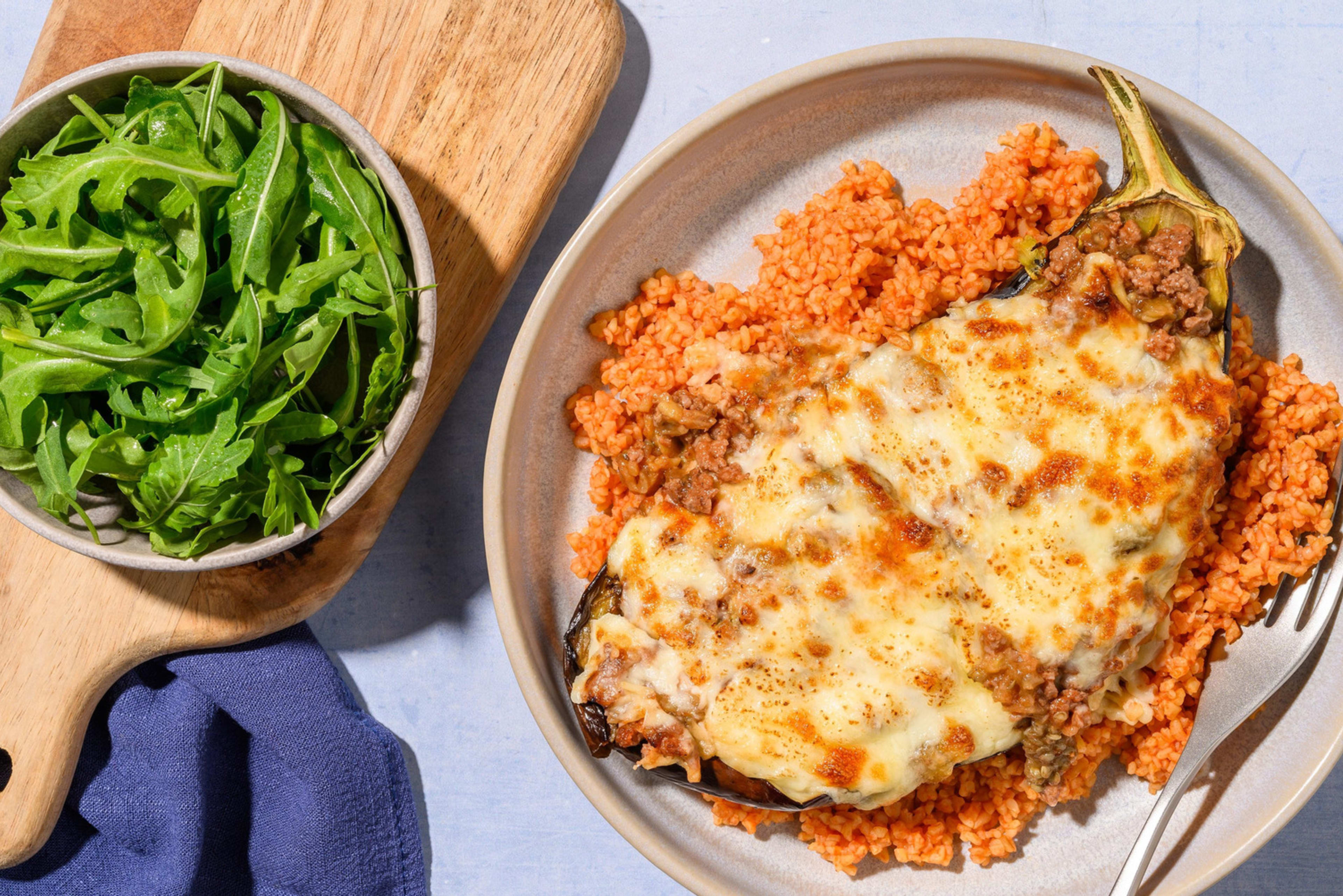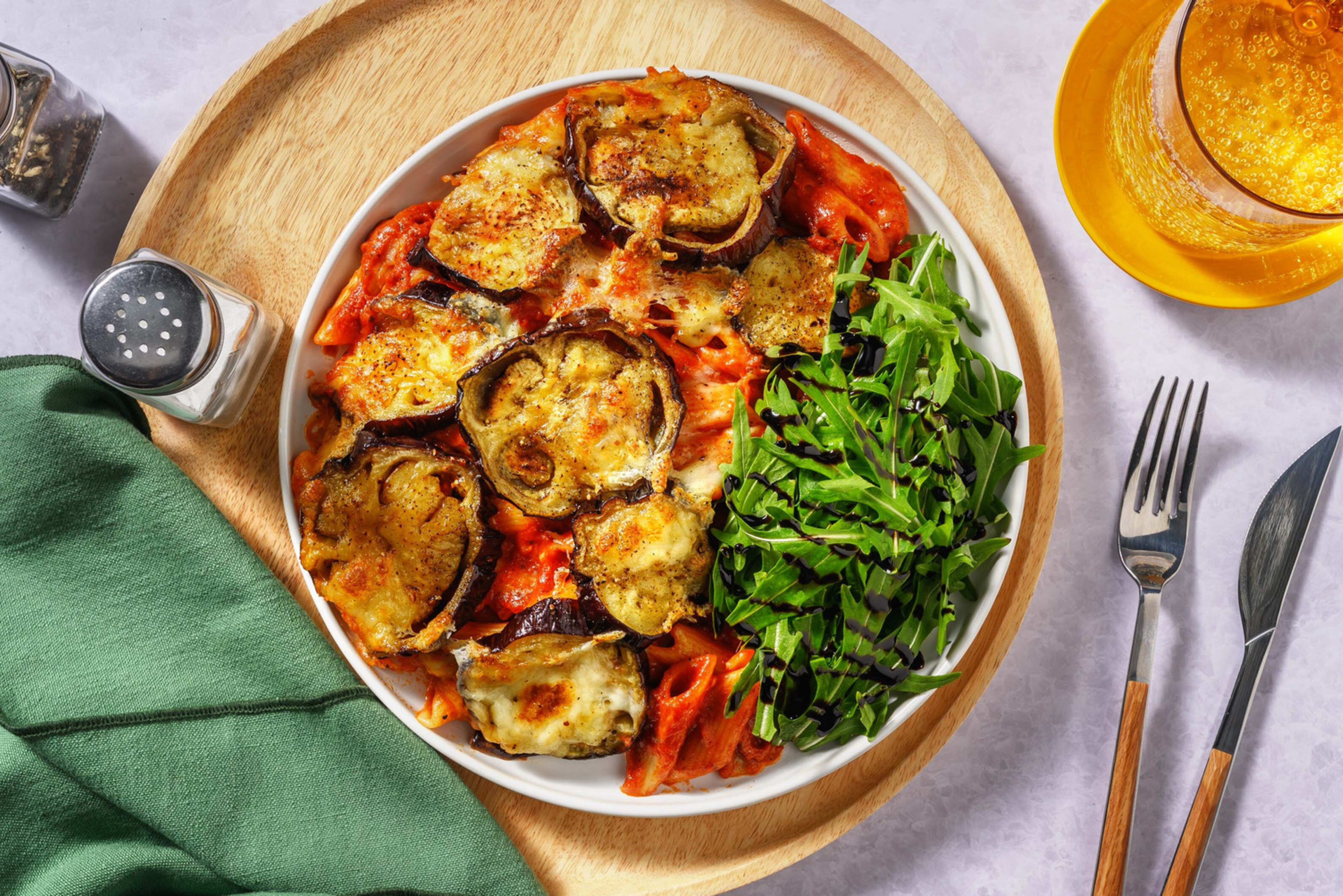Parmesan Recipes - Discover Ways to Add this Delicious Hard Cheese to Your Meals
Rich, bold and tangy, our favourite Italian hard cheese elevates roast potatoes, pastas, chicken dishes and more.
Find the Best Parmesan Recipes from HelloFresh
All Parmesan Recipes
From chicken and bakes, to luxury side dishes, elevate your mealtime with our delicious Parmesan recipes.Further All Parmesan Recipes
Chicken Parmesan Recipes
Looking for a taste of everyday luxury? Find chicken and Parmesan cheese recipes to please everyone around your dinner table.Further Chicken Parmesan Recipes
Parmesan Pasta Recipes
Curated by our team of expert chefs, our delicious Parmesan pasta recipe will guarantee clean plates all round.Further Parmesan Pasta Recipes
Parmesan Potatoes Recipes
Perfectly crispy on the outside, but soft and fluffy in the middle, these recipes with Parmesan potatoes are the best around.Further Parmesan Potatoes Recipes
Aubergine Parmesan Recipes
Bold and tangy Parmesan offsets the mild and subtly sweet flavours of aubergine perfectly, making these delicious dishes some of our favourites.Further Aubergine Parmesan Recipes
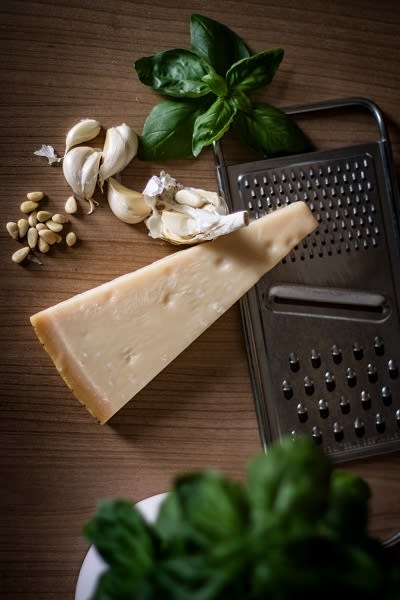
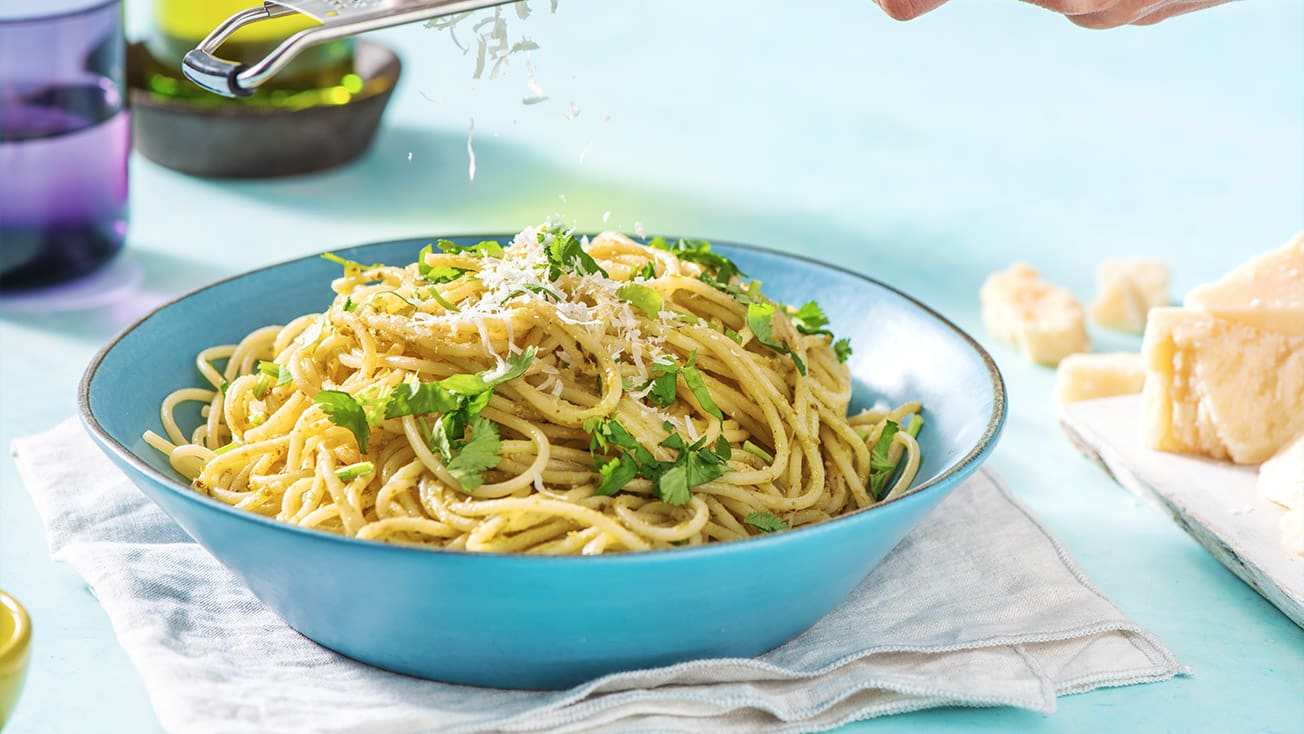
Parmesan Recipe FAQs
Can you freeze Parmesan?
Yes, you can freeze Parmesan. In fact, freezing is a great way to cut down on your food waste. Hard cheeses like Parmesan freeze well because they have a low moisture content. Bear in mind that the texture and overall quality will degrade and you won’t have an easy time slicing them once frozen. However, you might not need to freeze your Parmesan at all, as an unopened block of parmesan cheese can last up to six months in the fridge. Due to having a low moisture content and therefore being less prone to bacteria, parmesan will keep for longer than other types of cheeses. Just check for any hardening or darkening before eating.
What does Parmesan taste like?
Parmesan cheese boasts a rich, nutty and bold flavour with a slightly salty undertone, making it a versatile and not overwhelming addition to many dishes. Its granular texture and taste profile elevate all manner of dishes, from pastas and vegetables, to soups and salads.
What does Parmesan go with?
Parmesan’s tangy flavour perfectly accompanies the likes of aubergine and chicken, for instance, as well as being a vital ingredient in the very finest roast potatoes. Grated Parmesan also makes a perfect finishing touch to pasta dishes, where you want to take the flavour up a notch without adding an overwhelming flavour.
Is Parmesan cheese vegetarian?
Parmesan cheese is not considered vegetarian, due to how the cheese is made, using an ingredient called rennet which is crucial to the Parmesan production process. Rennet is made using animal products, which is the reason traditional Parmesan cheese cannot be considered vegetarian.
Recipes by Preferences and Dietary Lifestyle
Get excited every evening!
+5



Recipes you'll love!
Get delicious recipes and all ingredients fresh on your doorstep every week!




